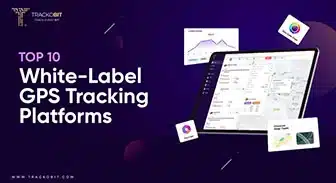-
TrackoBit
Manage commercial vehicles with the new-age Fleet Management Software
TrackoBit -
TrackoField
Streamline your scattered workforce with Field Force Management Software
TrackoField -
Features Resources
-
Blog
Carefully curated articles to update you on industrial trends. -
White Paper
Insightful papers and analysis on essential subject matters. -
Glossary
Explore an alphabetical list of relevant industry terms. -
What’s New
Get TrackoBit & TrackoField monthly updates here. -
Case Study
Explore the cases we solved with our diverse solutions. -
Comparisons
Compare platforms, features, and pricing to find your best fit.
-
About Us
Get to know TrackoBit: our team, ethos, values, and vision. -
Careers
Join the most dynamic cult of coders, creatives and changemakers. -
Tech Support
Learn about our technical support team and services in detail. -
Events
Check out the exhibitions where we left our marks and conquered. -
Contact Us
Connect with us and let us know how we can be of service.
Vehicle Management Systems – Meaning, Functions & Importance
- Author:Anvesha Pandey
- Read Time:8 min
- Published:
- Last Update: June 20, 2025
Table of Contents
Toggle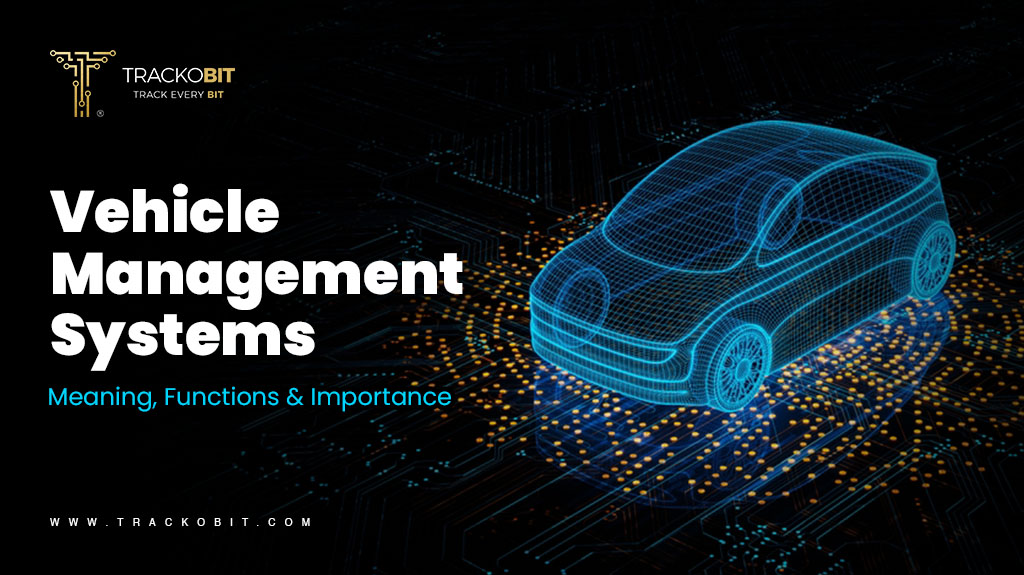
Explore what is a vehicle management system, how it works and increases efficiency of fleet management process. Also, discover the best software to enhance your vehicles utilisation and uptime.
Table of Contents
Toggle
Here’s a short story for you!
ABC Company (a fleet-centric business) had a big problem. They owned lots of vehicles, but managing them was a real headache. Keeping track of when the vehicles needed repairs, how much fuel they used, and having insights into their driver’s driving patterns was similar to herding cats! The company faced challenges like unexpected breakdowns, ineffective routing, and enhanced operational expenses daily.
But luckily they discovered the Vehicle Management System. An ultimate platform that’s suitable to streamline fleet operations. Which in turn helped them save money, keep their vehicles uptime to the maximum, and ensure drivers were safe.
This piece of writing revolves around insights into vehicle management systems. From its definition to why is it important to its functions- we have curated an all-in-one piece for you.
So let’s get started and understand how vehicle management systems helped ABC Company to amp up its fleet management game.
Let’s start with the meaning of the system.
What is a Vehicle Management System?
Vehicle management systems are the most advanced tech solution leveraged for monitoring large-scale vehicles and fleet business. The software can easily help you record and track every single piece of vehicular data.
At its core, the systems help organizations track, manage, and optimize their vehicle usage, ensuring efficiency, safety, and cost-effectiveness. The vehicle management system software helps you stay informed about your vehicle’s real-time information.
You may know that achieving true efficiency in fleet management requires reliable data and effective control over vehicle usage. An ideal vehicle management system helps transform vehicle utilization, thereby providing transparency and accountability for fleet owners.
Now that you partially know VMS, let’s take a deep dive into the functions of the systems.
Core Functions of Vehicle Management Systems
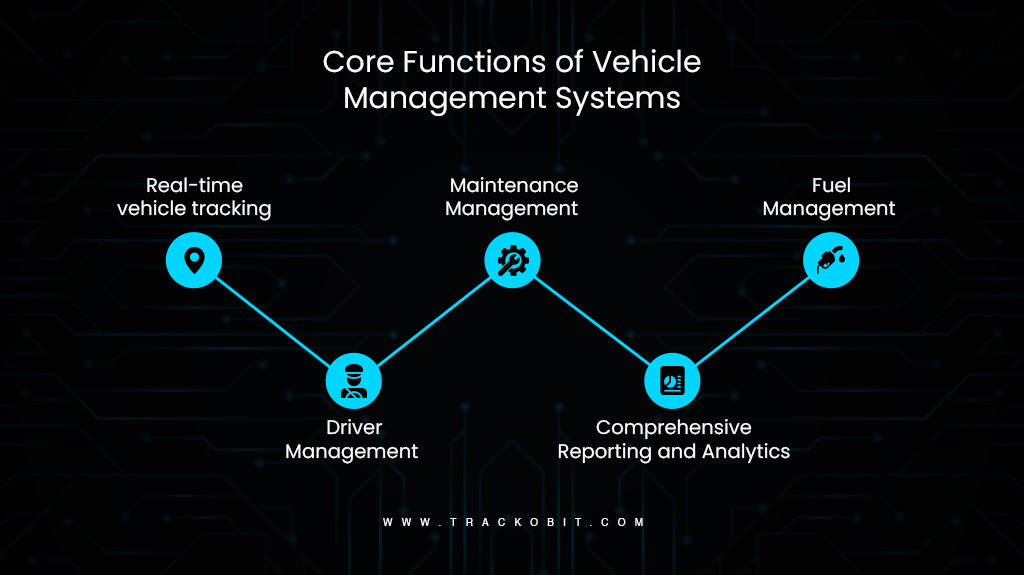
1. Real-time vehicle tracking
The Vehicle management systems software utilizes GPS technology to provide fleet managers with real-time locational data of vehicles. This data helps in monitoring vehicles’ movements, ensuring whether the drivers are following the planned routes or not. Additionally, it helps you track vehicle speed to ensure compliance with speed limits, promoting safety and reducing the risk of accidents. Moreover, this helps improve the overall fleet’s visibility.
Additionally, fleet managers can create virtual boundaries aka Geofences. Alongside that, alerts are generated when vehicles enter or exit these predefined areas, enhancing security and operational control.
2. Maintenance Management
We all know how important maintenance is for our vehicles as it prevents unexpected breakdowns. VMS automates the scheduling of regular maintenance tasks such as oil changes, tire rotations, and inspections based on mileage or hours of operation.
Additionally, telemetry data analytics helps to predict potential vehicle issues before they become a serious problem. Maintaining records can be a task without a vehicle management system as the system helps keep detailed records of all maintenance activities, including repairs, parts replaced, and costs. This helps maintain a comprehensive maintenance history for each vehicle.
Additionally, drivers can maintain vehicle reports aka DVIRs based on the condition of the vehicle. Drivers can maintain these reports both in pre-trip and post-trip situations.
3. Fuel Management
Cutting down fuel costs is one of the most prominent goals of business. The system helps you track fuel usage to identify patterns and potential inefficiencies. This helps in the reduction of fuel wastage and this further reduces operational costs.
Most of the VMS available in the market help you get live fuel updates with location and vehicle status. Plus, you also get insightful fuel reports clubbed with alerts on fuel refill and drainage too.
Additionally, vehicle management systems easily integrate with fuel cards to monitor and control fuel purchases, preventing unauthorized transactions and ensuring accurate expense tracking.
Additionally, fleet managers receive detailed fuel reports covering consumption, costs, and trends, offering valuable insights for fuel efficiency and budgeting. Furthermore, the system includes detection and alerts for any suspicious fuel transactions, aiding in preventing fuel theft and unauthorized usage.
4. Driver Management
Real-time vehicle tracking solutions help you track driver behavior, including speeding, harsh braking, and idling to promote safe and efficient driving practices. Also, driver identification becomes easier with the system as the system uses various driver identification methods like driver IDs and key fobs to assign drivers to specific vehicles, ensuring accurate tracking of driver activities.
Furthermore, fleet managers can manage driver training programs and certifications, ensuring that drivers meet all necessary qualifications and stay updated on safety protocols.
5. Comprehensive Reporting and Analytics
Comprehensive reporting and analytics in the vehicle management system is one of the features of the several vital components that empower fleet managers with actionable insights.
The system helps collect data from various sources, including telematics, maintenance records, and fuel usage. This data streamlines KPI tracking as it monitors the importance of monitoring key performance indicators to evaluate fleet efficiency, safety, and cost-effectiveness, and driving patterns.
Additionally, compliance reporting ensures that all necessary documentation for regulatory audits and inspections is readily available, thereby maintaining adherence to industry standards and legal requirements.
Why is a Vehicle Management System Important?
Clearly, there are multiple reasons why you really need a vehicle management system, some of the core reasons are unfolded below-
1. Streamlining Operations
A vehicle management system (VMS) streamlines fleet operations by integrating technologies like GPS tracking, IoT, and more that help in providing real-time data for monitoring. Moreover, it helps in reducing manual efforts, minimizing errors, and also enhances decision-making by offering instant insights into vehicle performance, maintenance schedules, and driver beheviour.
Altogether, as a result, it allows fleet managers to efficiently oversee all aspects of their fleet operations, from tracking vehicle usage to optimizing routes, ultimately reducing inefficiencies and improving overall productivity.
2. Improved Decision Making
As fleet managers, you might already know the importance of data. Real-time vehicle tracking systems help you get all the critical information about the vehicle status, maintenance needs, and driver performance all of which are readily available. This helps in addressing issues proactively and optimizing resource allocation.
Having access to real-time data and metrics empowers you to make informed decisions more fast, this further significantly enhances the overall operational efficiency.
3. Cost Efficiency
Implementing a vehicle management system aids in significantly cutting operational costs. It helps you monitor fuel consumption by using efficient route planning, reduce maintenance expenses by having detailed insight into the vehicle, and maintain compliance by being aware of unwanted expenses.
As a result, this translates into greater savings and improved return on investment (ROI) for businesses.
4. Increased Profits
The prime goal of businesses is to increase their profits. By optimizing fleet operations and addressing inefficiencies, the system significantly contributes directly to increased profitability. This helps in identifying problem areas quickly and taking efficient steps to resolve them, optimizing the overall fleet performance.
This improvement in efficiency ensures that resources are used wisely, paving the way for enhanced business growth and success.
The Role of Telematics in Vehicle Management
We all know the fact how various technological advancements like IoT, AI, and telematics have made vehicle/fleet management more efficient. This section of this piece unfolds how telematics amped the game.
Basics first, the telematics technology is integrated into the fleet via the vehicle’s OBD (onboard diagnostic) ports to provide data into software platforms. Having access to telemetry data encourages deep insights into driver behavior, staying compliant with fleet policies, and having every vehicular data at hand.
Let’s uncover more in detail about the role of telematics in vehicle management
- Enhances customer/client service by implementing real-time GPS tracking, trip analysis, and optimized routing.
- Offers in-vehicle driver coaching, assessments of risk and driving behavior, notifications for accidents, accident reconstruction, and tracking for lost or stolen vehicles and equipment.
- Employs predictive maintenance and remote diagnostics to improve maintenance efficiency.
- Helps monitor idling and other driving habits for better fuel management.
- Streamlines fleet compliance with user-friendly tools for electronic logging, Hours of Service (HOS) management, and driver vehicle inspection reporting (DVIR).
- Facilitate integration with other software solutions, including onboard camera systems or CRM platforms, and develop new applications as needed.
- Manages electric vehicles (EVs) to minimize the fleet’s environmental footprint and reduce carbon emissions.
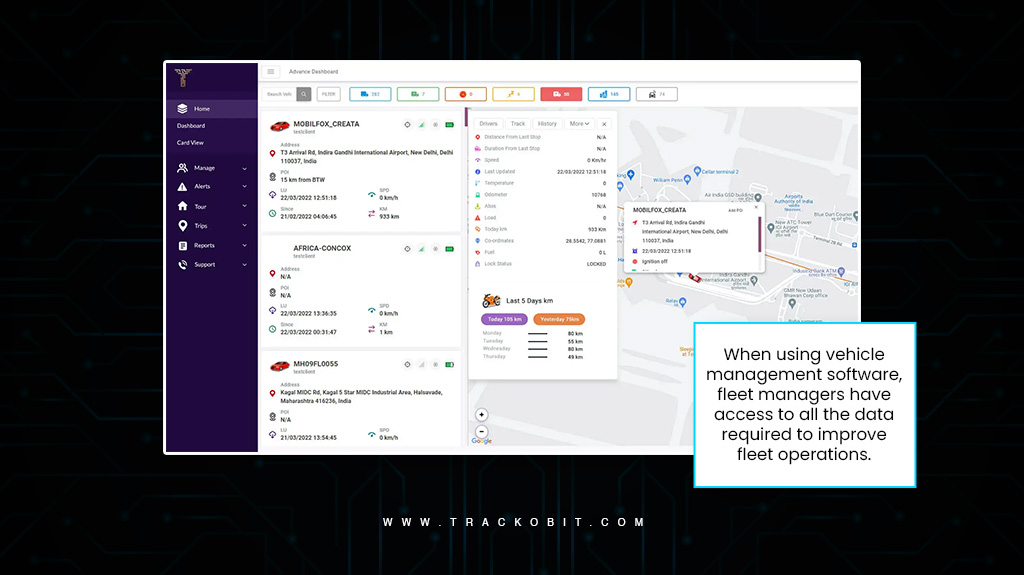
Unlock Efficient Vehicle Management with TrackoBit
Enhance your fleet’s performance with TrackoBit’s cutting-edge fleet management software, designed to elevate driver behavior, plan better routes, streamline cost analysis, and provide real-time visibility into fleet location and performance.
That’s just not all as you can gain unparalleled insights into vehicle efficiency and the driver’s safety. The software highlights risky driving patterns like speeding or hard braking while identifying drivers who may need additional coaching.This data-driven approach not only ensures your fleet’s compliance with federal and state regulations, including DVIR and ELD requirements but also fosters a culture of safety.
We hope that now you would have understood how TrackoBit provides you with 360° efficient vehicle management.
Want to know more?
FAQs on Vehicle Management System
-
What is a Vehicle Management System?
A Vehicle Management System is a software solution designed to oversee and manage various aspects of a fleet, including vehicle maintenance, driver behavior, route optimization, and fuel consumption.
-
What are the benefits of a Vehicle Management System?
Vehicle Management System enhances fleet efficiency by automating routine tasks, providing real-time data for informed decision-making, reducing operational costs, and improving vehicle and driver safety.
-
Which is the best vehicle management system?
Well if you are looking for the best vehicle management system, you can always trust TrackoBit. The software single-handedly covers all your fleet operations entirely. From planning trips to gauging driver beheviour paired with the accuracy of data, an analytical dashboard for all types and sizes of fleets.
Anvesha is a communication specialist at TrackoBit. With a strong background in media and communications, she adds much-needed balance and brevity to TrackoBit’s... Read More
Related Blogs
-
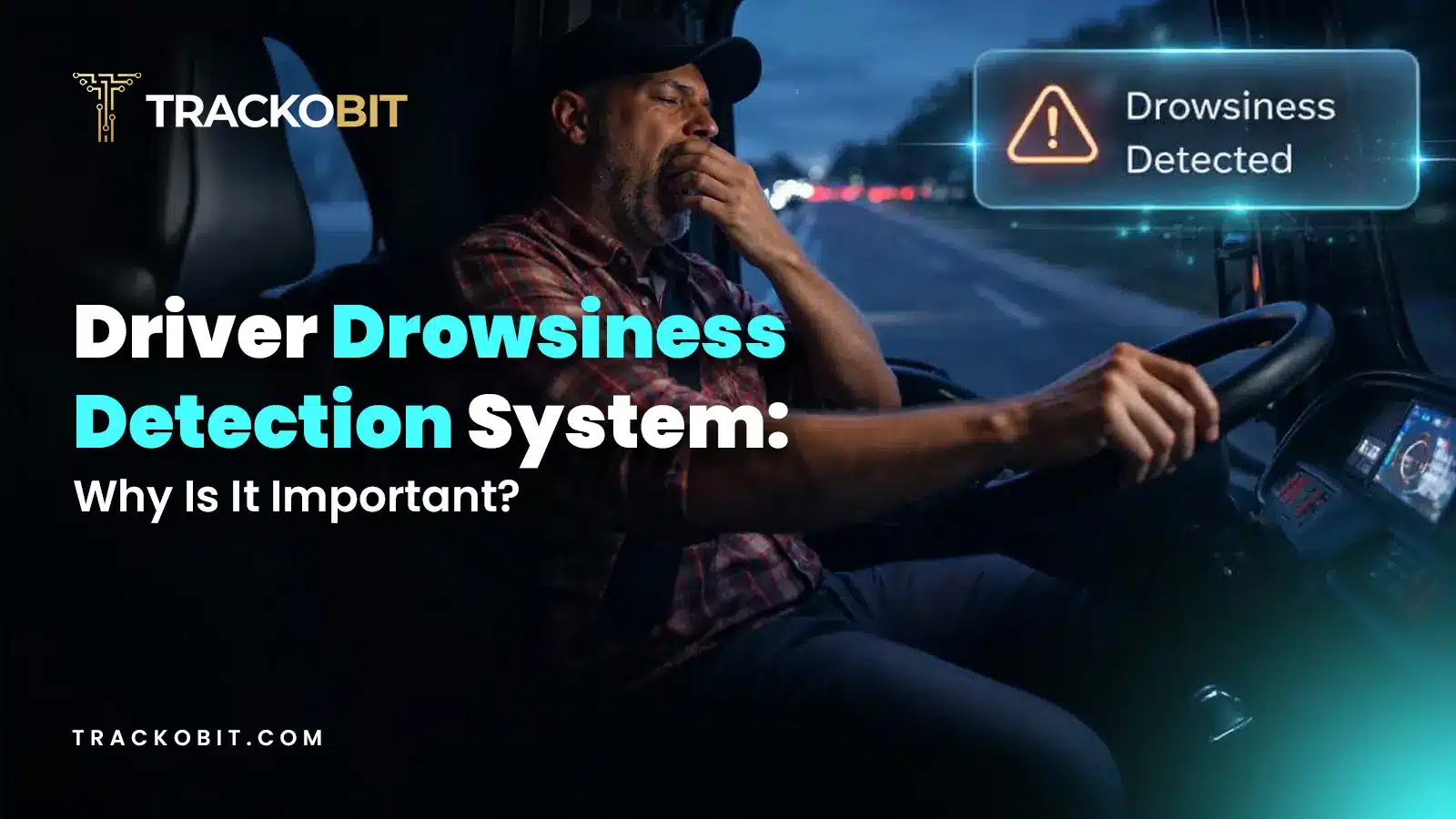
Why is Driver Drowsiness Detection System Important for Fleet Management?
Shemanti Ghosh February 4, 2026A driver drowsiness detection system is critical for fleet management. It helps prevent fatigue-related accidents and reduces operational risks through…
-
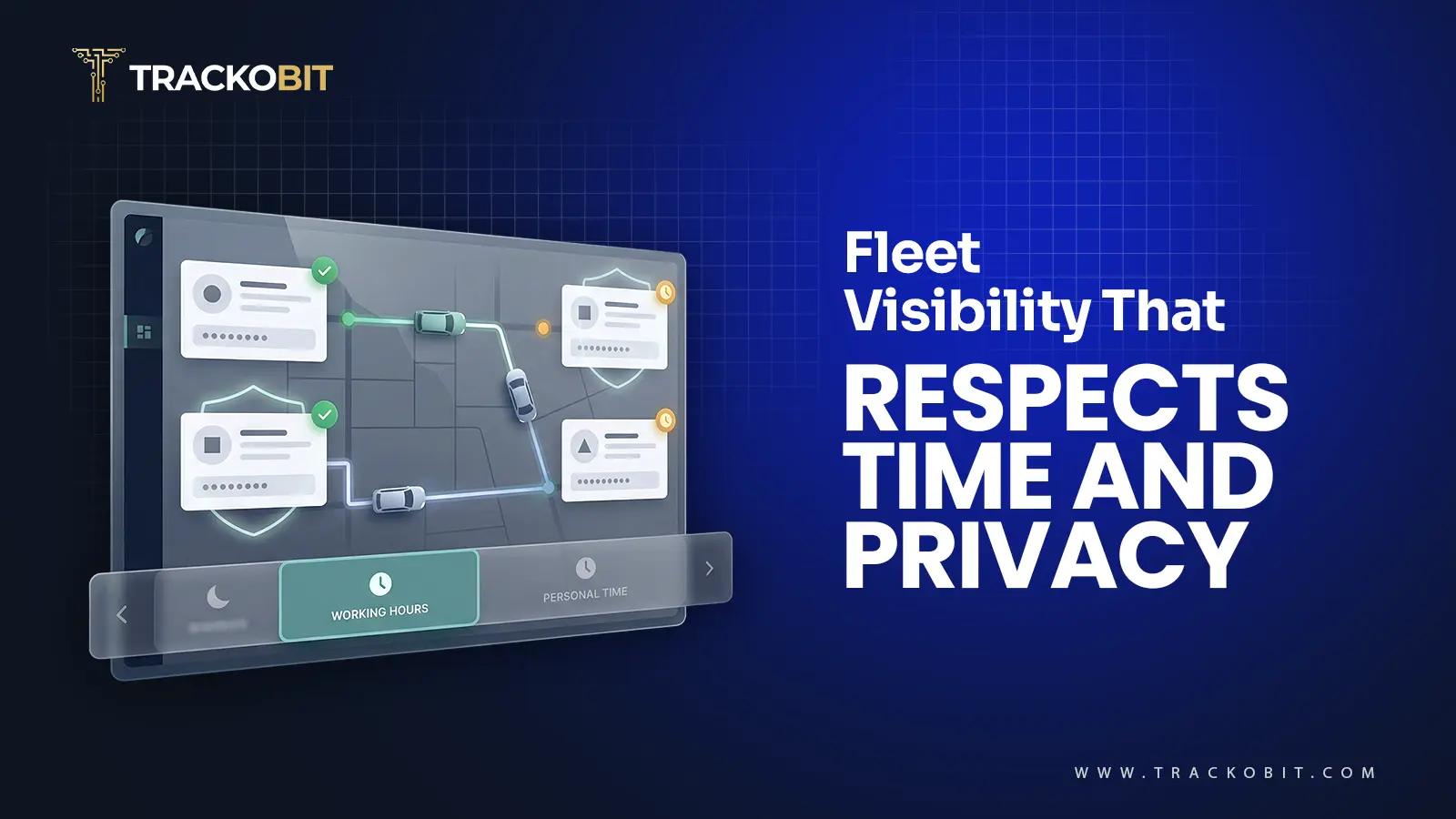
When Tracking Needs a Clock: Rethinking Fleet Visibility
Tithi Agarwal December 24, 2025Read on to understand why fleet tracking works better when it follows working hours. Because visibility should support operations, not…
-

What Makes TrackoBit’s Video Telematics Software Truly Next-Gen?
Shemanti Ghosh December 17, 2025TrackoBit’s video telematics software blends smart video intelligence with full server control. The result? Superior fleet reliability and safety.
-
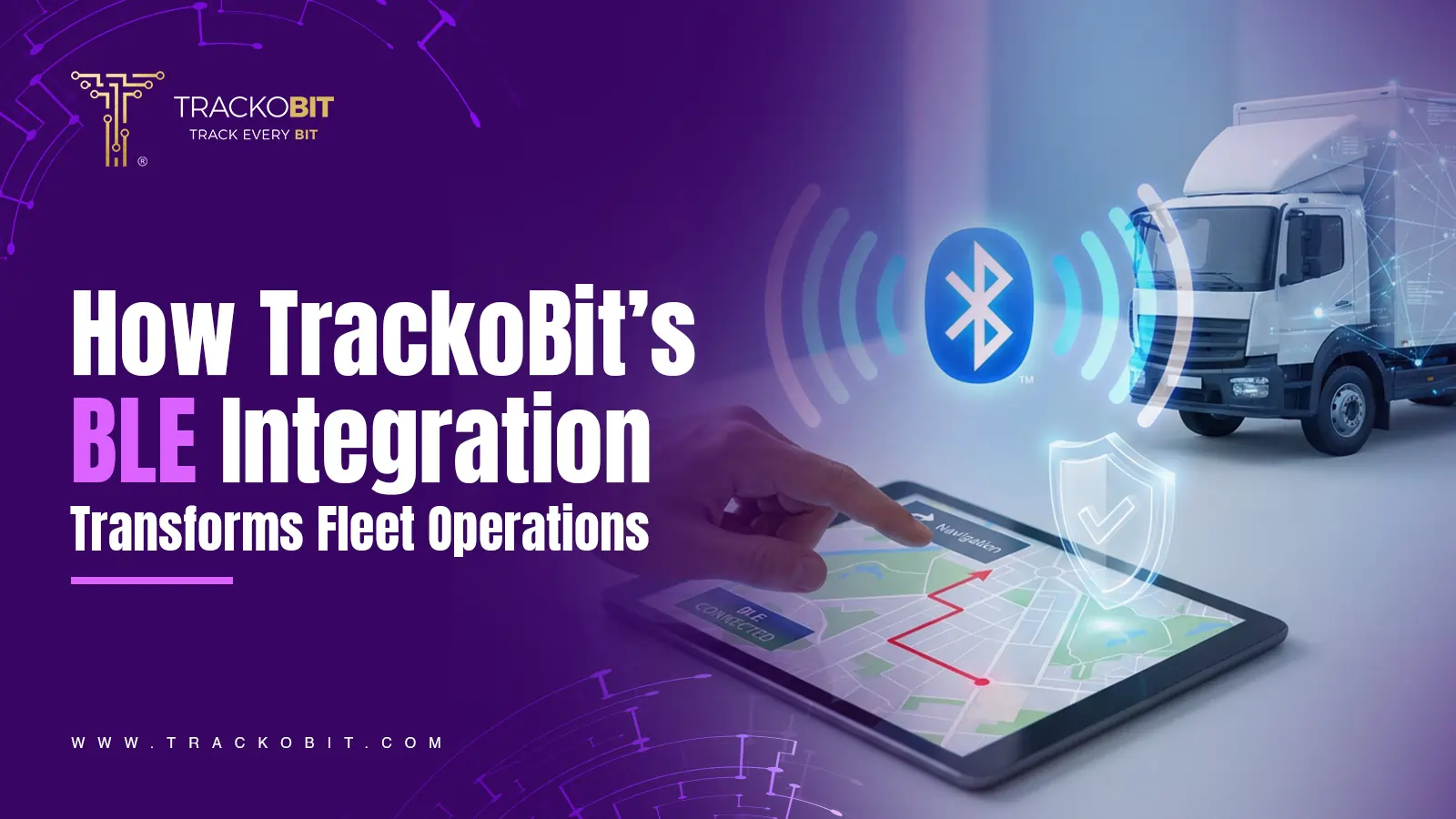
Plug, Pair, Perform TrackoBit Introduces BLE Sensor Integration
Tithi Agarwal November 26, 2025TrackoBit’s BLE Sensor Integration enables wireless, real-time monitoring with faster installs and accurate insights. It improves fleet efficiency, visibility, and…

Subscribe for weekly tips to optimize your fleet’s potential!
Your inbox awaits a welcome email. Stay tuned for the latest blog updates & expert insights.
"While you're here, dive into some more reads or grab quick bites from our social platforms!"Stay Updated on tech, telematics and mobility. Don't miss out on the latest in the industry.
We use cookies to enhance and personalize your browsing experience. By continuing to use our website, you agree to our Privacy Policy.



































